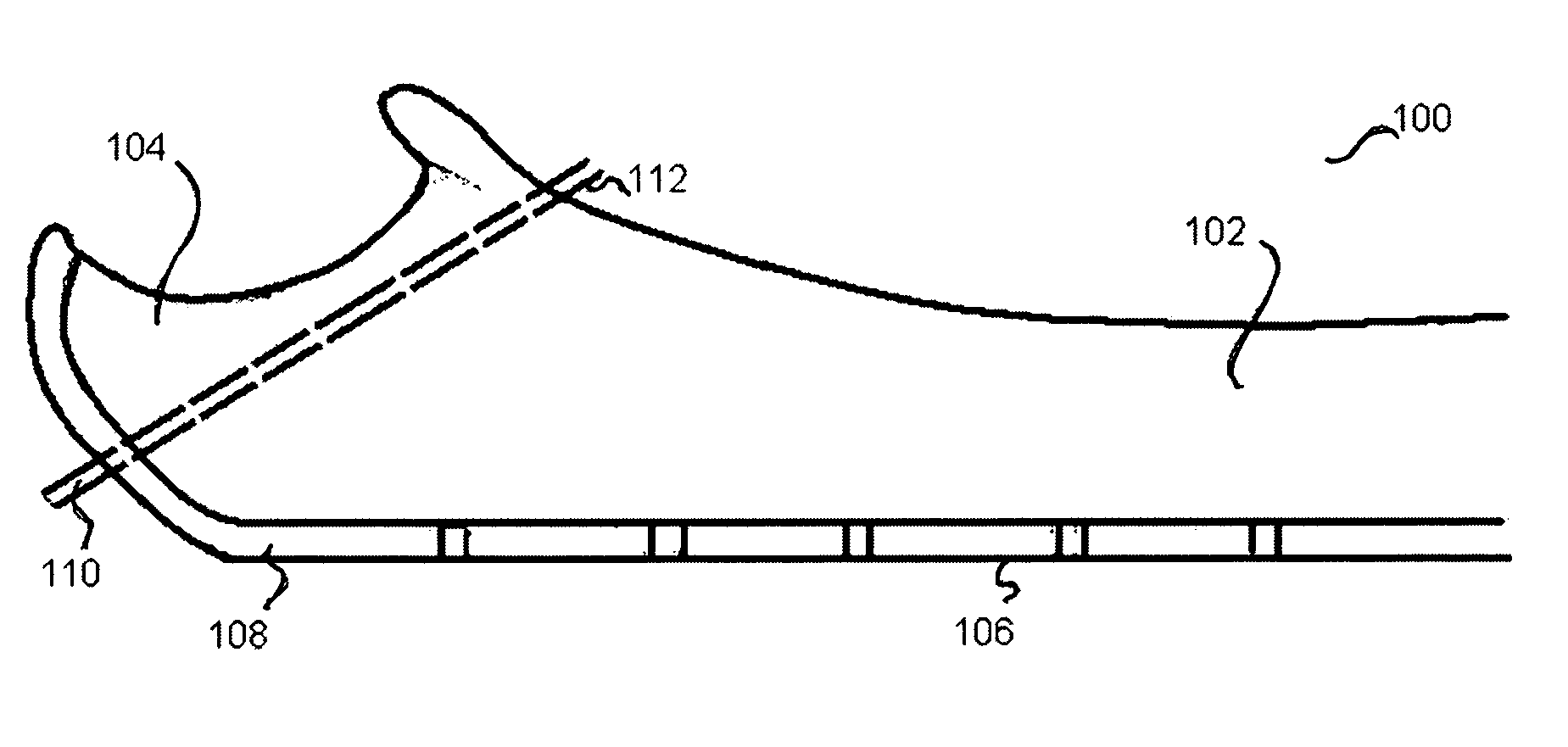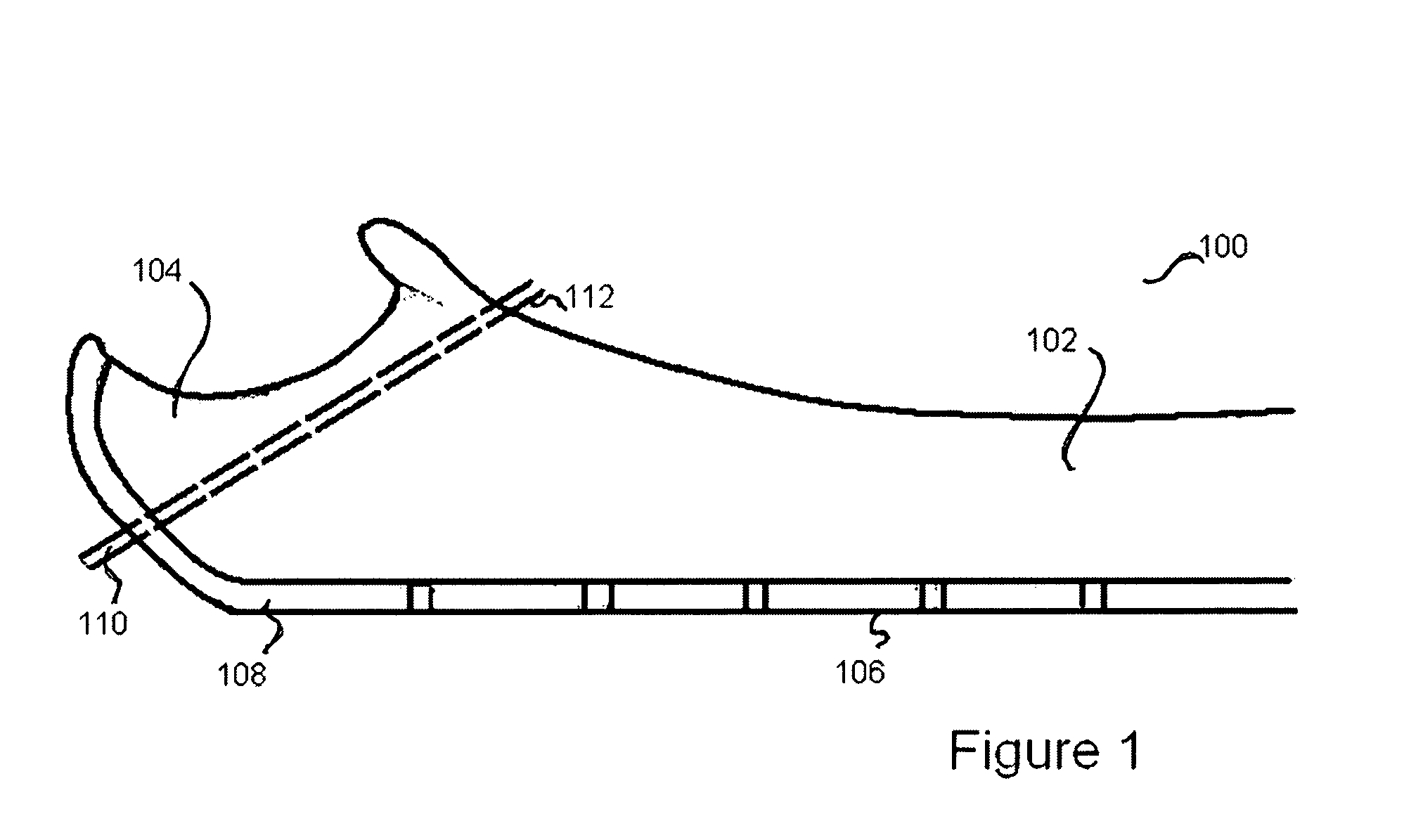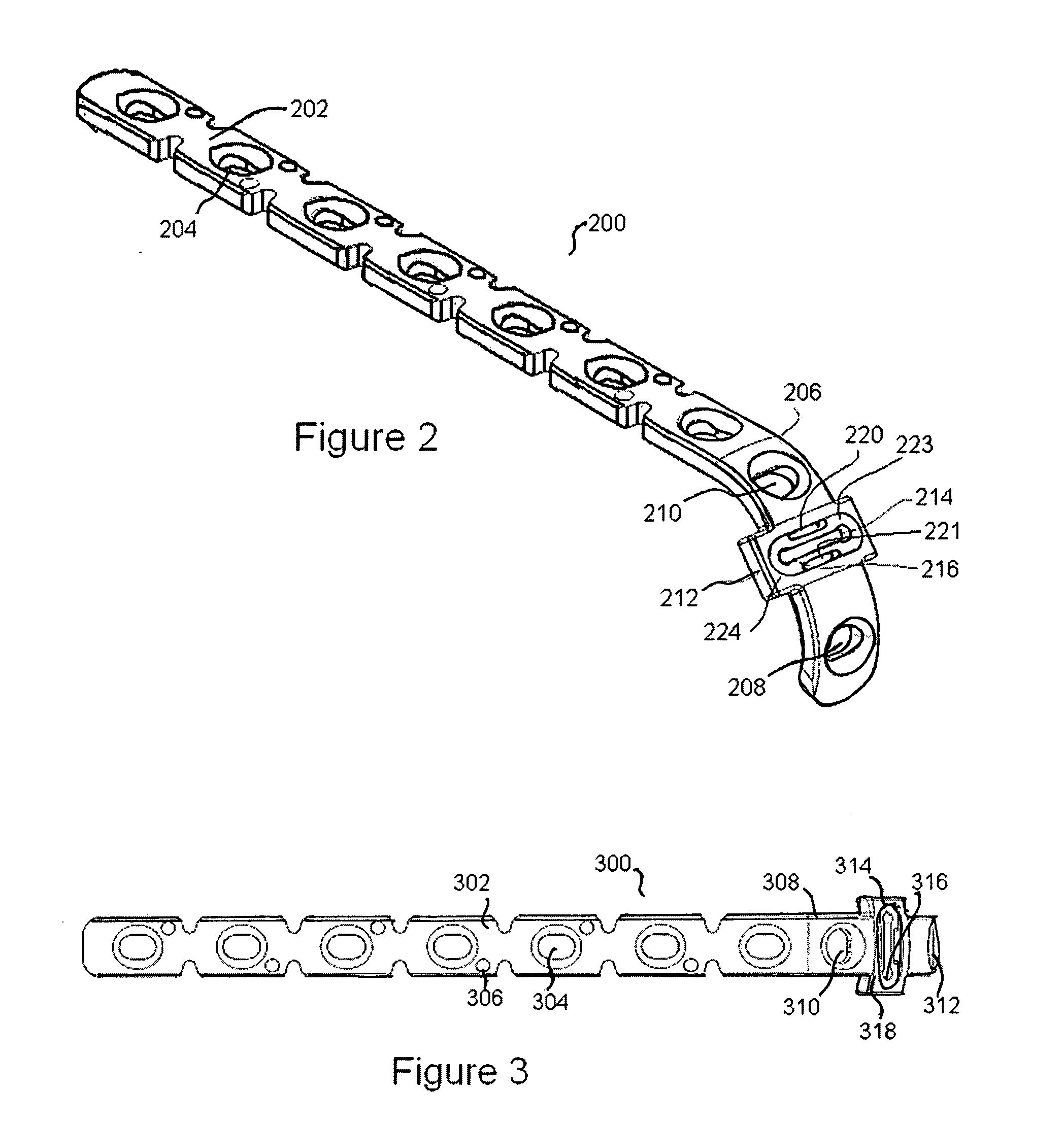Orthopaedic appliances
a technology for orthopaedic appliances and articular joints, applied in the field of orthopaedic appliances, can solve problems such as loss of fixation, and achieve the effect of easy removal
- Summary
- Abstract
- Description
- Claims
- Application Information
AI Technical Summary
Benefits of technology
Problems solved by technology
Method used
Image
Examples
Embodiment Construction
[0022]The bone plate of the present invention is adapted for fractures of the olecranon but the principles taught herein, particularly with regard to the fastening of K wires, may have application in a variety of K wire fixation systems. FIG. 1 illustrates the ulna bone 102 and olecranon 104. The olecranon plate 106 is attached to the ulnar shaft using screws (not shown). One end of the olecranon plate is bent to shape the curve of the ulna 108. One or more, and in this example two laterally spaced, parallel K wires 112 pass through the olecranon plate 110 and into the ulna.
[0023]As shown in FIGS. 2 and 3, the plate comprises a notched or segmented shaft portion 202, with at one or more counter-bored shaft screw hole 204 for cooperating fixation screws. Opposing notches that define the segments allow the shaft to be bent, as required. The screw or screws are used to attach the plate to the shaft of the ulna. The plate 202 has a curved end 206 with two screw holes 208 and 210 that ar...
PUM
 Login to View More
Login to View More Abstract
Description
Claims
Application Information
 Login to View More
Login to View More - R&D
- Intellectual Property
- Life Sciences
- Materials
- Tech Scout
- Unparalleled Data Quality
- Higher Quality Content
- 60% Fewer Hallucinations
Browse by: Latest US Patents, China's latest patents, Technical Efficacy Thesaurus, Application Domain, Technology Topic, Popular Technical Reports.
© 2025 PatSnap. All rights reserved.Legal|Privacy policy|Modern Slavery Act Transparency Statement|Sitemap|About US| Contact US: help@patsnap.com



